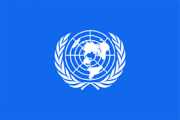Madam Chair,
I speak on behalf of the Member States of the Caribbean Community (CARICOM), which are honoured to participate in this 56th Session of the Commission on the Status of Women. In so doing, allow me Madam Chair to congratulate you and the other members of the Bureau on your election and assure you of CARICOM’s full support in the attainment of a successful outcome to this meeting.
I further wish to thank the Secretariat and the other presenters for the reports provided, which will inform our deliberations and also enable us to agree on concrete measures on the way forward.
CARICOM aligns itself with the statements delivered by the distinguished representatives of Algeria and Chile, speaking on behalf of the G-77 and China and the Community of Latin American and Caribbean countries (CELAC), respectively.
Madam Chair,
CARICOM States are committed to gender equality and the empowerment of women, including rural women.
In keeping with this, all CARICOM States are indeed taking measures to ensure that women realize their full potential as individuals while making meaningful contributions to society.
The Commission’s priority theme this year, addresses the critical issue of the empowerment of rural women and their role in poverty and hunger eradication, development and current challenges. Although the empowerment of women may appear to be generic there are sharp distinctions in the experiences of urban and rural women.
These differences require the adoption of more targeted approaches in dealing with the empowerment of rural women, who additionally play multiple roles including small farmers, seasonal agricultural workers and care givers.
In the context of the negative impact of the ongoing global financial and economic crisis, several rural communities within our Member States have experienced a downturn in various economic activities and a consequent rise in unemployment wherein women have been the disproportionately affected.
Madam Chair,
Historically, agriculture has played an important role in the economies of CARICOM States. However, the need for economic diversification has resulted in a reduced focus on the agricultural sector impacting the livelihoods and empowerment of rural women, who tend to be largely employed in the agricultural sector.
In recognition of the continuing importance of agriculture to rural development, GDP, employment, export earnings and sustainable development of the states of the region, CARICOM Heads of Government in July 2009 adopted the Liliendaal Declaration, which underscored the need to “maximize regional agricultural production to meet our food security and nutrition needs, address poverty alleviation as well as income and employment generation.”
To this end, Heads of Government have been promoting the production and consumption of locally produced food. One element of this, the “Eat what you grow” campaign, touches on the empowerment of rural women, including their contribution in poverty and hunger eradication, given their role in agriculture and small scale farming.
Within CARICOM efforts to empower rural women varies from state to state, taking into account the proportion of rural to urban population, which according to FAO data in 2006 ranges from 11% to 90%. As a consequence, some states have implemented national plans for the empowerment of rural women, appointed gender representatives or focal points to ensure that the perspective of rural women are taken into consideration and/or have implemented special programmes and projects targeting these women.
Madam Chair,
While action is being taken to empower rural women, further efforts are clearly needed to ensure that rural women have access to better technology, information, as well as education and skills enhancement programmes that extend beyond agriculture.
CARICOM Governments have also demonstrated their support for Rural Women’s Networks. For example, CARICOM in partnership with the Inter-American Institute for Cooperation on Agriculture (IICA) and UNIFEM organized a workshop in June 2010 in St. Lucia entitled “Capacity Building for the Caribbean Network of Rural Women Producers (CANROP). This workshop aimed at exposing rural women to intensive training in entrepreneurship, financial management, strategic planning, social skills and networking to effectively represent themselves in the ever-evolving business and social environments. The workshop also enabled rural women to deal more positively with changes to meet current and emerging global challenges that impact on their communities.
Madam Chair,
As we focus on the particular challenges faced by rural women, which is reflected in the priority theme for this meeting, we call for the full implementation of the various Conventions and Agreements relating to women, with a particular emphasis on Article 14 of the CEDAW Convention, which safeguards access, benefits and full participation of rural women in the context of national development. This is in keeping with CARICOM’s commitment to eliminating discrimination against women in rural areas and to ensure their empowerment in the pursuit of our development priorities.
CARICOM States acknowledge that rural women including indigenous women are a repository for creative, innovative and traditional knowledge that can be useful in enhancing food security, prevention of environmental degradation and maintaining agricultural biodiversity. It is our hope that the upcoming Rio Plus 20 Conference in June this year, will unequivocally articulate commitments relevant to the contribution of women, including rural women to hunger and poverty eradication and sustainable development.
I thank you.


